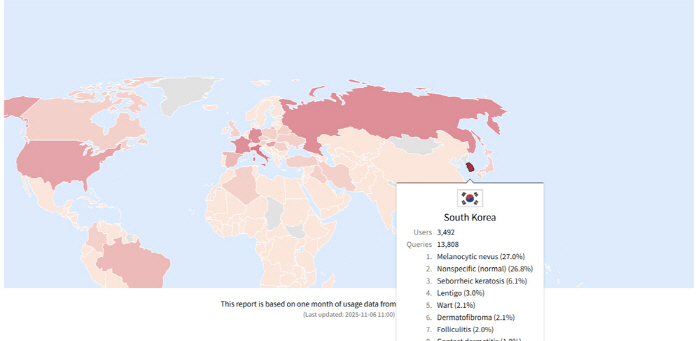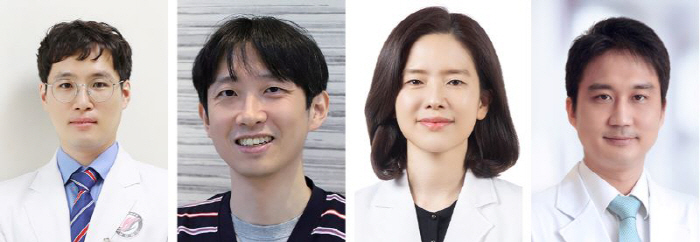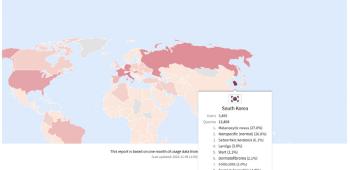Professor Kim Sung-hwan's team at Hallym University's Gangnam Sacred Heart Hospital studied global performance verification of skin diagnosis AI...Selected by Hanbit Corporation
Nov 06, 2025
|
The research paper is titled 'Planet-wide performance of skin disease AI in actual clinical and global user environments (Planet-wide performance of a skin disease AI algorithm validated in Korea)' and is a multinational joint study involving major organizations around the world, including Seoul National University Hospital, Basel University in Switzerland, and Catholic University in Chile. The paper was published in the latest issue of npj Digital Medicine (IF:15), an international academic journal under Nature Portfolio.
Professor Kim Sung-hwan's team verified the clinical reliability and accuracy of AI globally by analyzing large-scale clinical data of 152,443 cases of 70 skin diseases from nine hospitals, including Hallym University Gangnam Sacred Heart Hospital and Seoul National University Hospital, and 1.69 million cases of ModelDerm's global actual use data collected from 228 countries around the world. This is the first time to analyze and visualize skin disease patterns around the world with real-time data.
As a result of AI performance verification, Model Dermatology showed high accuracy, recording 78.2% of sensitivity (probability to find cancer accurately) and 88% of specificity (probability to correctly distinguish people without cancer) in skin cancer diagnosis based on 150,000 domestic clinical data and 1.69 million global actual use data.
Regional analyses showed that skin cancer (2.6%) was relatively common in North America, benign tumors (55.5%) in Asia, and infectious diseases (17.1%) in Africa.
These results show that AI has advanced beyond simply classifying images to a level that reflects country-specific disease distribution, prevalence, skin color, and living environment, and allows customized disease prediction.
The research team released a real-time aggregation platform by visualizing the global use record of its own skin diagnosis AI algorithm model, Dermatology, by country-specific disease frequency and interest. Anyone can access this platform to check the current status of skin diseases by country and changes in diseases of interest in real time.
Professor Kim Sung-hwan said, "This study is a global demonstration of how accurately AI works in clinical reality. We will continue to develop medical artificial intelligence that directly helps patients diagnose and treat skin cancer and AI-based disease prediction technology."
The Biological Research Information Center (BRIC) selects and introduces domestic research results published in the world's top 3% or JIF 10 or higher journals.
|
This article was translated by Naver AI translator.















